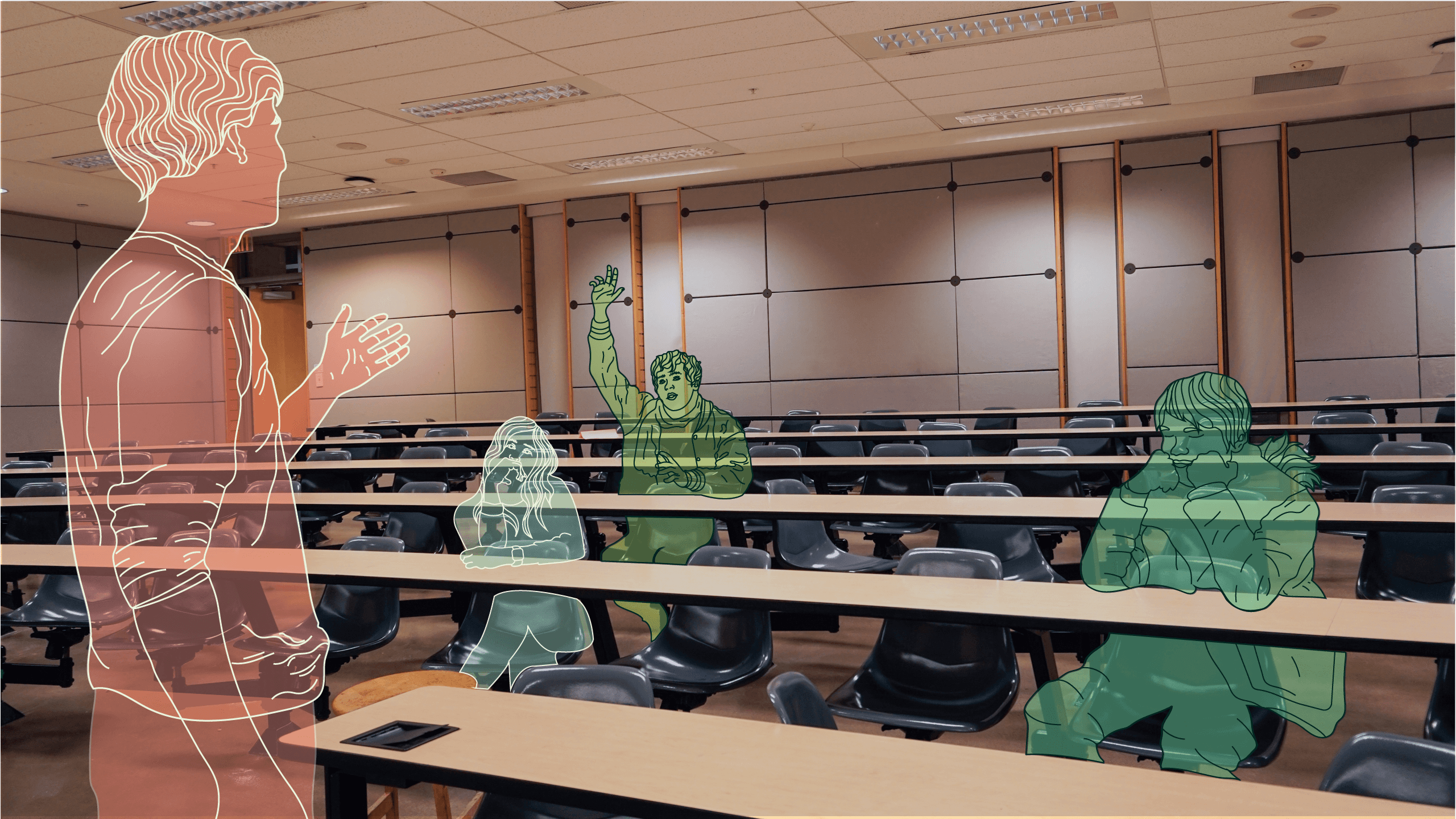By Uhanthaen Ravilojan
Being assigned climate crisis readings every week by a professor can get really tedious. Teachers with courses on environmentalism and the climate crisis will be instructing hundreds of students on changes the crisis will bring. To keep students engaged, they bring unique teaching methods to the classroom, in hopes of educating them on the most important issue of our time.
Claire Oswald, assistant professor of geography and environmental studies at Ryerson, teaches courses that look at climate change through the lenses of climatology, hydrology and meteorology, the studies of climate, water and weather processes, respectively.
Oswald was in the fourth year of her undergraduate physics program when she saw an ad looking for someone to work as a research assistant in Manitoba. “I applied to that job, got it and fell in love with the outdoor aspect of the work,” said Oswald.
In class, Oswald takes students to Allan Gardens to get meteorological measurements and to the Don River to collect samples of water organisms to see the impacts of urbanization. She gives what she learned from years of field work back to her students, hoping they’ll learn more from experience than lectures.
“I think just getting the students out of the classroom…can be really helpful for them to develop a more emotional connection to the environment,” said Oswald.
Questions of how politics affect environmental decisions attracted Sarah Edge, assistant professor of geography and environmental studies, to teach at Ryerson.
Edge’s classes look at how government policy responds to communities being affected by environmental degradation.
In one of Edge’s classes, EUS 850, sustainability in organizations, students work on a virtual university model and make it more sustainable. Students scrutinized food consumption, water and energy use in buildings. Their strategies are pitched to sustainability officers who visit their class.
Some pitches were picked up as pilot projects, such as F.R.E.S.H., created by Lauren White. The program highlights groups commited to sustainable operations during Orientation Week to help students get involved at the beginning of their year. “It helps people connect their in-class experience to potential future work experience,” said Edge.
Professor Deborah de Lange, associate professor of global management studies, teaches sustainable business to undergraduate and graduate students. Her teaching is based on the United Nations (UN) goals for sustainable development.
De Lange aims to reinforce that sustainability, not profit, should be at the core of business.
She illustrates this with the triple-bottom line. Companies that adopt a triple-bottom line account for not only financial costs, but social and environmental costs of operating as well. Thus, a company reflects its entire impact on the planet. “I think stories and case studies are illustrations that help people feel closer to the issue,” said de Lange.
However, even the most talented teacher given the most attentive class can get discouraged. Students already dealing with academic, social and financial pressures can be overwhelmed with eco-anxiety by climate change material. But Edge emphasizes seeing activism in action can help to counteract that. “[Incentivising students] to participate in a protest or rally like the recent climate change justice rally…can be a transformative moment, or a little sparkle of hope amidst the drudgery of the day to day,” said Edge.
Oswald’s advice is to find solace in those young enough to still be curious. “Go and talk to school kids about what you’re doing because they’re always enthusiastic and bright-eyed,” said Oswald. “They know a lot, and it’s a really rewarding experience to share research with young students.”
For de Lange, environmentalism has actually been institutionalized. “It’s no longer thought of as something that’s on the fringes.”












Leave a Reply